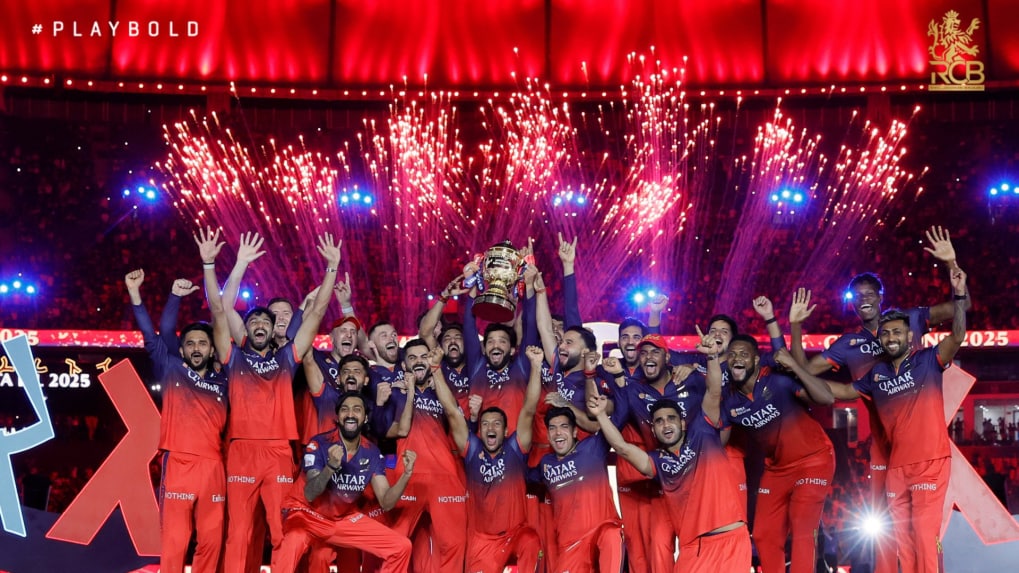Digital
Why OpenAI is hiring 100 ex-bankers: Inside the ChatGPT-maker's secret project to automate Wall Street's grunt work

India’s live event industry is on a remarkable growth trajectory, but the tragic death of 11 cricket fans during the Royal Challengers Bengaluru (RCB) victory celebration has cast a stark spotlight on the urgent need for better infrastructure and planning. Experts warn that the nation’s capacity to host world-class events is being outpaced by its readiness to manage them.
The celebrations, held at short notice outside Bengaluru’s M Chinnaswamy Stadium after RCB clinched its first Indian Premier League (IPL) trophy in 18 years, turned into chaos as thousands of fans thronged the area. The resulting stampede led to multiple fatalities and raised uncomfortable questions about administrative preparedness.
While the Karnataka government claimed the felicitation event was a last-minute affair and the crowd turnout was underestimated, many believe this tragedy was avoidable.
At the same time, the sector is experiencing record growth. According to a recent EY report, India’s live events market surpassed ₹12,000 crore in 2024 and is projected to grow at a compound annual growth rate (CAGR) of 19% over the next three years. High-profile concerts, such as Coldplay’s performance in Ahmedabad, have demonstrated the country’s ability to host large-scale, global-standard shows while also stimulating local economies.
Yet these successes remain marred by logistical breakdowns and inconsistent planning. “The incident which took place in Bengaluru is extremely disappointing and saddening,” said Nishant Kini, Founder & Director of The Nishe & Co, and a veteran who has worked with top event firms like Wizcraft and Percept. “The sports and concert economy in India is growing, but this requires constant infrastructure support. The stadiums, transport, single-window clearance among local administration support must be strengthened to make any state a successful place for experiential events.”
Kini further emphasized, “It is very important that organizers are in sync with state governments to provide adequate support for transport, safety and well-being of attendees. There is an utmost need for better infrastructure in the country for the growth of the experiential, live sporting, and concert industry.”
The growing popularity of live experiences has not only bolstered allied industries like tourism, food services, and transportation but also positioned India as a potential global hub for entertainment. However, event cancellations and safety lapses paint a more complicated picture. The NH7 Weekender festival in Pune, for instance, was recently cancelled after Pimpri Chinchwad police denied permission due to anticipated law and order and traffic issues.
According to Cauvery Adiga, COO of NEB Sports Entertainment Private Limited, meticulous planning and strong coordination between all stakeholders are essential for successful event execution.
“Organizing a high-volume event requires meticulous planning and seamless coordination among various stakeholders—organizers, police, local administration, medical services, and more,” Adiga said. “Clear and timely communication with participants is equally critical to ensure safety, crowd control, and a positive experience for all involved.”
Adiga also underscored the importance of local authorities. “The local administration brings invaluable insight into the region’s operational dynamics, including infrastructure, traffic flow, and emergency services. Their role is essential in assessing potential impacts, planning execution, and ensuring smooth functioning.”
While praising the Bengaluru Police for their effectiveness in managing large crowds, she acknowledged that the RCB celebrations were hindered by the lack of preparation. “The RCB victory celebrations were announced at very short notice, leaving little time for structured planning and coordination. Additionally, the rapid spread of information via social media channels led to overcrowding and confusion, further complicating the situation.”
Viraf Sutaria, mentor of the Bengaluru Midnight Marathon (BMM), echoed the need for uncompromising standards. “There should be no compromise in aspects such as the holding capacity of a venue and professionals must be roped in for executing such events. Adequate coordination with police personnel, traffic, and law and order departments is critical, and they must be briefed and taken around the entire area.”
Sutaria outlined the rigorous process followed at BMM to prevent mishaps. “Proper permissions are obtained, and most importantly, traffic is organized and diverted in a manner that the public is not overly inconvenienced. We do not want road rage to spoil a good event,” he said.
“In addition, we have our own security guards and volunteers, who are trained to guide and maintain calm at all times. Route marshals are professionals who have managed many marathons. All permissions for music, DJ, food, metro rail, BBMP, waste management etc. are taken well in advance. The entire area is spic and span and back to normal within two hours of the event closing.”
As India races ahead in the live event space, the tragedy in Bengaluru serves as a grim reminder that enthusiasm must be matched with planning. Without robust infrastructure, clear regulations, and close cooperation among authorities, the promise of India’s entertainment future may come at an unthinkable cost.
From purpose-driven work and narrative-rich brand films to AI-enabled ideas and creator-led collaborations, the awards reflect the full spectrum of modern creativity.
Read MoreIn a wide-ranging interview with Storyboard18, Sorrell delivers his frankest assessment yet of how the deal will redefine creativity, media, and talent across markets.